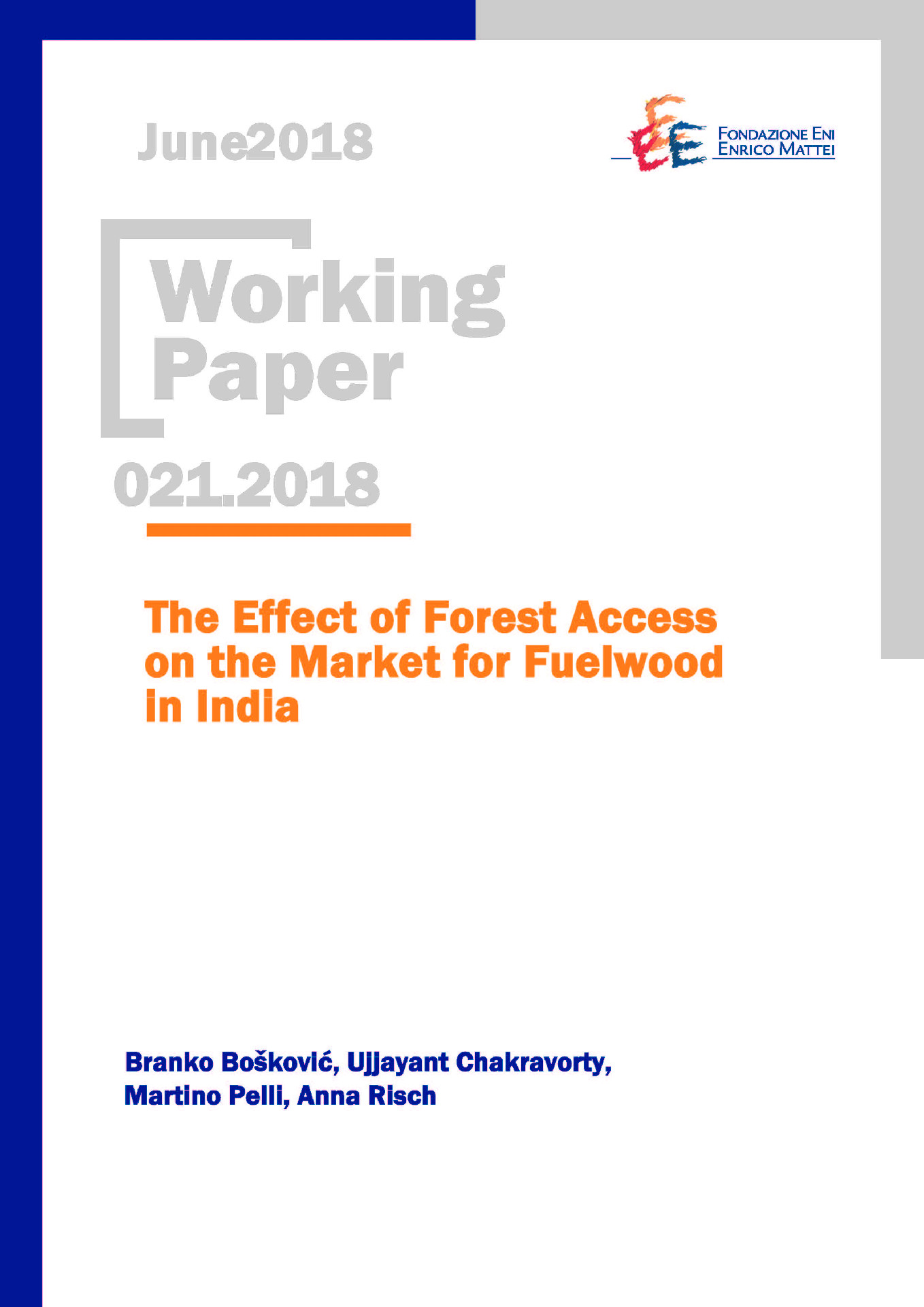The Effect of Forest Access on the Market for Fuelwood in India

08.06.2018
Branko Boškovic (School of Business – University of Alberta); Ujjayant Chakravorty (Tufts University, Toulouse School of Economics); Martino Pelli (Department of Economics – University of Sherbrooke); Anna Risch (GAEL – University Grenoble Alpes)
D10, O13, Q42
Energy Access, Cooking Fuels, Deforestation, Forest Cover, Fuelwood Collection
Climate and Sustainable Innovation
Massimo Tavoni
Fuelwood collection is often cited as the most important cause of deforestation in developing countries. Use of fuelwood in cooking is a leading cause of indoor air pollution. Using household data from India, we show that households located farther away from the forest spend more time collecting. Distant households are likely to sell more fuelwood and buy less. That is, lower access to forests increases fuelwood collection and sale. This counter-intuitive behavior is triggered by two factors: lower access to forests (a) increases the fixed costs of collecting, which in turn leads to more collection; and (b) drives up local fuelwood prices, which makes collection and sale more profitable. We quantify both these effects. Using our estimates we show that a fifth of the fuelwood collected is consumed outside of rural areas, in nearby towns and cities. Our results imply that at the margin, fuelwood scarcity may lead to increased collection and sale, and exacerbate forest degradation.
***
Suggested citation: Boškovic, B., U. Chakravorty, M. Pelli, A. Risch, (2018), ‘The Effect of Forest Access on the Market for Fuelwood in India ‘, Nota di Lavoro 21.2018, Milano, Italy: Fondazione Eni Enrico Mattei
